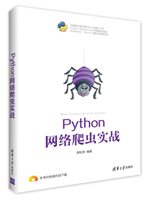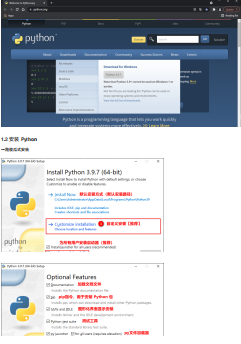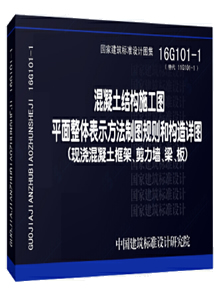为网友们分享了相关的编程文章,网友傅颀秀根据主题投稿了本篇教程内容,涉及到pytorch 显存占用递增、pytorch 显存占用、pytorch 显存占用递增相关内容,已被272网友关注,涉猎到的知识点内容可以在下方电子书获得。
pytorch 显存占用递增
遇到的问题:
在pytorch训练过程中突然out of memory。
解决方法:
1. 测试的时候爆显存有可能是忘记设置no_grad
加入 with torch.no_grad()
model.eval() with torch.no_grad(): for idx, (data, target) in enumerate(data_loader): if args.gpu != -1: data, target = data.to(args.device), target.to(args.device) log_probs = net_g(data) probs.append(log_probs) # sum up batch loss test_loss += F.cross_entropy(log_probs, target, reduction='sum').item() # get the index of the max log-probability y_pred = log_probs.data.max(1, keepdim=True)[1] correct += y_pred.eq(target.data.view_as(y_pred)).long().cpu().sum()
2. loss.item()
写成loss_train = loss_train + loss.item(),不能直接写loss_train = loss_train + loss
3. 在代码中添加以下两行:
torch.backends.cudnn.enabled = True torch.backends.cudnn.benchmark = True
4. del操作后再加上torch.cuda.empty_cache()
单独使用del、torch.cuda.empty_cache()效果都不明显,因为empty_cache()不会释放还被占用的内存。
所以这里使用了del让对应数据成为“没标签”的垃圾,之后这些垃圾所占的空间就会被empty_cache()回收。
"""添加了最后两行,img和segm是图像和标签输入,很明显通过.cuda()已经是被存在在显存里了; outputs是模型的输出,模型在显存里当然其输出也在显存里;loss是通过在显存里的segm和 outputs算出来的,其也在显存里。这4个对象都是一次性的,使用后应及时把其从显存中清除 (当然如果你显存够大也可以忽略)。""" def train(model, data_loader, batch_size, optimizer): model.train() total_loss = 0 accumulated_steps = 32 // batch_size optimizer.zero_grad() for idx, (img, segm) in enumerate(tqdm(data_loader)): img = img.cuda() segm = segm.cuda() outputs = model(img) loss = criterion(outputs, segm) (loss/accumulated_steps).backward() if (idx + 1 ) % accumulated_steps == 0: optimizer.step() optimizer.zero_grad() total_loss += loss.item() # delete caches del img, segm, outputs, loss torch.cuda.empty_cache()
补充:Pytorch显存不断增长问题的解决思路
思路很简单,就是在代码的运行阶段输出显存占用量,观察在哪一块存在显存剧烈增加或者显存异常变化的情况。
但是在这个过程中要分级确认问题点,也即如果存在三个文件main.py、train.py、model.py。
在此种思路下,应该先在main.py中确定问题点,然后,从main.py中进入到train.py中,再次输出显存占用量,确定问题点在哪。
随后,再从train.py中的问题点,进入到model.py中,再次确认。
如果还有更深层次的调用,可以继续追溯下去。
例如:
main.py
def train(model,epochs,data):
for e in range(epochs):
print("1:{}".format(torch.cuda.memory_allocated(0)))
train_epoch(model,data)
print("2:{}".format(torch.cuda.memory_allocated(0)))
eval(model,data)
print("3:{}".format(torch.cuda.memory_allocated(0)))
若1与2之间显存增加极为剧烈,说明问题出在train_epoch中,进一步进入到train.py中。
train.py
def train_epoch(model,data):
model.train()
optim=torch.optimizer()
for batch_data in data:
print("1:{}".format(torch.cuda.memory_allocated(0)))
output=model(batch_data)
print("2:{}".format(torch.cuda.memory_allocated(0)))
loss=loss(output,data.target)
print("3:{}".format(torch.cuda.memory_allocated(0)))
optim.zero_grad()
print("4:{}".format(torch.cuda.memory_allocated(0)))
loss.backward()
print("5:{}".format(torch.cuda.memory_allocated(0)))
utils.func(model)
print("6:{}".format(torch.cuda.memory_allocated(0)))
如果在1,2之间,5,6之间同时出现显存增加异常的情况。此时需要使用控制变量法,例如我们先让5,6之间的代码失效,然后运行,观察是否仍然存在显存爆炸。如果没有,说明问题就出在5,6之间下一级的代码中。进入到下一级代码,进行调试:
utils.py
def func(model):
print("1:{}".format(torch.cuda.memory_allocated(0)))
a=f1(model)
print("2:{}".format(torch.cuda.memory_allocated(0)))
b=f2(a)
print("3:{}".format(torch.cuda.memory_allocated(0)))
c=f3(b)
print("4:{}".format(torch.cuda.memory_allocated(0)))
d=f4(c)
print("5:{}".format(torch.cuda.memory_allocated(0)))
此时我们再展示另一种调试思路,先注释第5行之后的代码,观察显存是否存在先训爆炸,如果没有,则注释掉第7行之后的,直至确定哪一行的代码出现导致了显存爆炸。假设第9行起作用后,代码出现显存爆炸,说明问题出在第九行,显存爆炸的问题锁定。
参考链接:
http://www.zzvips.com/article/196059.html
https://blog.csdn.net/fish_like_apple/article/details/101448551
到此这篇关于pytorch训练时的显存占用递增的问题解决的文章就介绍到这了,更多相关pytorch 显存占用递增内容请搜索码农之家以前的文章或继续浏览下面的相关文章希望大家以后多多支持码农之家!









